

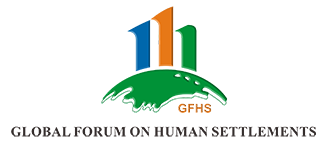
Committed to Sustainable Cities and Human Settlements for All

In Special Consultative Status with ECOSOC
Abstract: Located at the border of Henan and Anhui Province, the city of Jieshou is the northwest gate of Anhui Province. It covers an area of 667.3 square kilometers with a population of 802,000. Since 2004, Jieshou relying on the renewable resources, has cultivated two comprehensive utilization industries of recycled metal and recycled plastic, to accelerate the development of circular economy. In recent years, the circular economy industry in Jieshou has maintained a high growth momentum. The contribution rate of circular economy to Jieshou industry has always retained above 70%. Circular economy not only supports the economic development of Jieshou healthily and rapidly, but also generates multiple benefits in economy, society, resources, ecology, etc. The practice of the Jieshou shows that only by steadfastly taking the road of environmental protection, innovation, large-scale and standardized development, can circular economy develop in a healthy and rapid manner.

He Fengyang, Mayor of Jieshou City, delivered a speech at the Ninth Regional 3R Forum, March 2019, Bangkok, Thailand
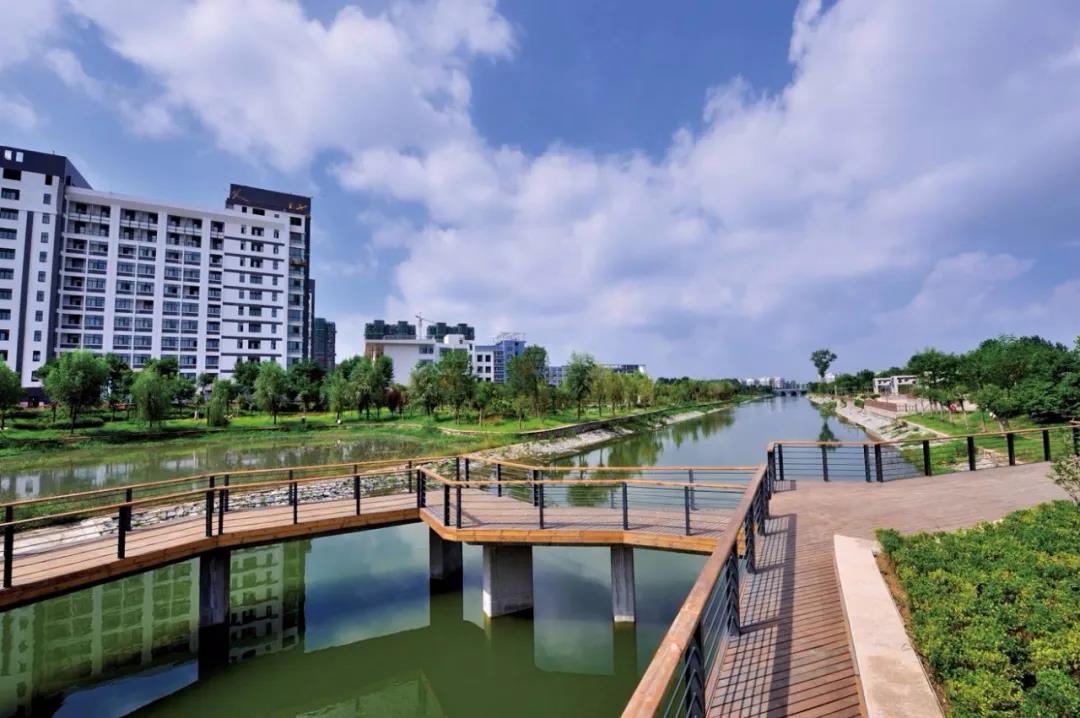
Urban clear water and blue sky
1. The Development of circular economy
for ten-year upward Line and the produced four benefits
In the 1990s, the economy of Jieshou ranked the last
in the Anhui province. In order to get out of the predicament, Jieshou has
re-examined the renewable resources industry, adhered to the concept of
circular economy to develop the renewable resources industry for more than ten
years. The economic development’s upward line has been drawn up.
In 2017, the local GDP reached 18.9 billion yuan, 11% increase over the same period last year, ranking first in Anhui Province; the above-scale industrial added value was 14.7 billion yuan, an increase of 13.5%, ranking ninth and third in the total amount and growth rate of Anhui Province respectively. In 2006, the proportion of secondary industry increased from 35.1% to 58.9%. In 2018, the above-scale industrial added value achieved more than 13 billion yuan, an increase of 13.8%, total amount and rate of increase ranked the 8th and 4th respectively in Anhui Province. Circular economy not only supports the economic development of Jieshou healthily and rapidly, but also generates multiple benefits in economy, society, resources, ecology, etc.
Firstly, Economic Benefits. In recent years, the
circular economy industry in Jieshou has maintained a high growth momentum. The
average annual output value and tax revenue has increased by more than 40%. The
contribution rate of circular economy industry to Jieshou industry has always
retained above 70%. In 2017, Jieshou's circular economy industry realized
output value of 50.6 billion yuan and tax of 2.5 billion yuan, respectively 40
times and 60 times higher than when it was built, which played a demonstration
role in the development of resources recycling industry.
Secondly, Social Benefits. The circular economy
industry in Jieshou has brought about more than 40,000 families to become rich.
Farmer's per capita net income has been increased by more than 10%. It has
spawned many multimillionaires and billions of enterprises, and encouraged the
development of related industries such as business logistics, information and
communication. At the same time, a large number of caring and public welfare
entrepreneurs actively participate in activities such as "100 enterprises
to help 100 villages" and caring for left-behind children, which has led
to the formation of a strong atmosphere of "big love in small
cities".
Thirdly, Resource Efficiency. Recycling industry of
recycled lead in Jieshou Recycling utilization of 450,000 tons of waste
lead-acid batteries annually, and 330,000 tons of recycled lead from smelting
each year. It can save about 30 million tons of lead ore annually, and save
119,600 tons of raw coal and 439,000 tons of water, which is equivalent to
building 10 large lead mining enterprises, and the lead self-sufficiency in
China has been extended from ten years to fifty years. The recycling industry
of recycled plastic can process and utilize 800,000 tons of recycled plastic
annually, saving 3.6 million tons of petroleum, equivalent to reduce the
construction of three medium-sized chemical plants. The recycling industry of
copper and aluminium produces 200,000 tons of recycled copper and aluminium
annually, which saves more than 10 million tons of copper and aluminium ores,
greatly reduces the development of primary mineral resources by the state, and
reduces energy consumption, water consumption and land resource occupation in
metal smelting.
Fourthly, Ecological Benefits. Jieshou City has
established a national resource recovery network system. At the present day,
100 million old storage batteries are recycled annually, it can reduce land
occupation and pollution by about 3,000 square kilometers; 1.8 million tons of
waste plastic recycled annually can reduce land occupation and pollution by
more than 800 square kilometers. Without the Jieshou’s development of resource
recycling industry, every lead-acid battery will become a real source of
pollution. The waste plastic cannot be degraded for 100 years. Point pollution
and flake pollution will be seen everywhere.
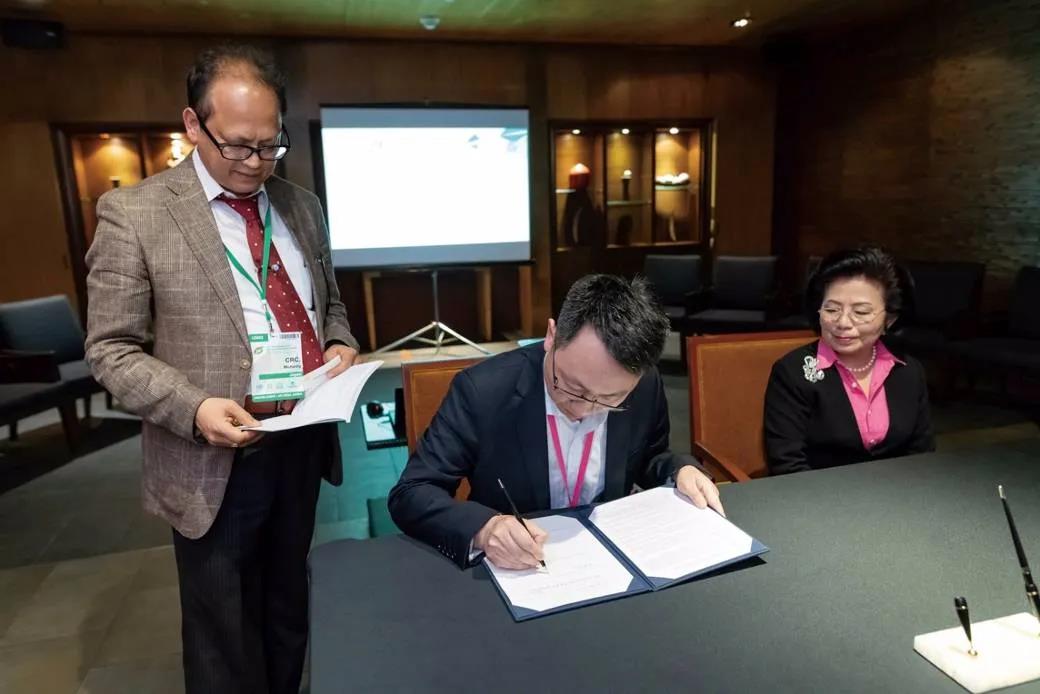
Jieshou signed the Indore 3R Declaration of Asian Mayors on Achieving Clean Water, Clean Land and Clean Air in Cities in Asia at the Ninth Regional 3R Forum, March 2019, Bangkok, Thailand
2. Misunderstanding of circular economy and successful
practice in Jieshou.
The development of circular economy is not plain sailing; it has realized the phoenix nirvana and gaining rebirth by experiencing a lot of ups and downs. In the process of developing a circular economy, we deeply feel the discrimination and prejudice from the inside and outside of the industry for circular economy. The main misunderstandings are reflected in four aspects:
The first part of misunderstanding: Developing
circular economy will inevitably pollute the environment.
At the initial stage of the development of recycling
resources industry, due to the law, policy, technology and so on, it exists
small-scale, scattered distribution and non-standard phenomenon. For example,
in the 1980s and 1990s, part of Jieshou’s people on the basis of going out to
collect rubbish, begin to reprocessing original and scattered renewable
resources. For a while, recycled metal industry displays the vision of
"village ignition, household smoke", recycled plastic industry show
the fact of "household acquisition, household processing", the scene
is quite spectacular. The primitive and extensive way of operation has been
reported by the masses, exposed by the media and noticed by the higher
authorities, which have also made the industry with the "crime" of
polluting the environment.
Faced with the passive situation, Jieshou City
actively acts as follows: Firstly, strengthening environmental protection law
and small scattered enterprises banned. Secondly, advocating cleaner production
and encouraging enterprises to increase investment in technology upgrading. At
present, all enterprises have completed the "coal to gas"
transformation of boilers, and all above-scale enterprises have reached the
level of cleaner production above the first level, and other enterprises have
reached the level of the second level. Thirdly, developing the circular economy
in accordance with the concept of Eco-industry and build China’s Karenburg.
Being focused on the establishment of national Eco-industrial demonstration
park, we should guide industrial transformation and upgrading, improve quality
and efficiency.
The second part of misunderstanding: Circular economy
is a low-end industry: At the initial stage of recycling the renewable
resources, the recycling system is lack of necessary rules and regulations. Tricycles
are the transport, and trumpets are marketing tools, creating a low-end
impression for person. In the initial processing stage, the equipment is
backward, the industrial scale is small, and most of the products are in the
low end of the industrial chain, the added value of the products is low, Perceptions
of being primitive, extensive and highly polluting are deeply rooted in many
people's minds.
Faced with many disputes, Jieshou strives to change
people's perceptions through its own practice. Firstly, we encourage close cooperation
between production, education and research and keep on the way of innovation
and development. Secondly, we encourage the development of industrial chain and
build a new strategic emerging industrial agglomeration development base.
Thirdly, we also encourage the integration of the Industrialization and
informatization and actively dock with Made-in-China 2025. Through policy
guidance and project planning services,
Tianneng Group, Kang Mingyuan and other enterprises will be guided to
accelerate the "machine replace the person" and promote industrial
robots to play a demonstration role.
The third part of misunderstanding: Scale of circular
economy is inversely proportional to benefit: Some people see the false
impression of the small scattered enterprises making profits and think that the
scale and benefit of circular economy are
not equal. Some people think that keeping small scale is better for renewable
resources enterprises. However, when it comes to the strategic development of
enterprises and even industries, the larger the scale, the higher attention
will be, and the pressure will be greater.
To resolve this misunderstanding, the city has made
efforts as follows: First is collectivized operation. In accordance with the
requirements of the modern enterprise system, the city actively supports the
development of business groups, and introduces professional managers and
financial teams so as to promote shareholding reform. The second is large-scale
development. The industrial park's facilities and public research and
development platform have been constantly improved, which has provided an
enabling environment for business development. The companies including
Tianneng, Huabo and Huaxin were listed on top 100 provincial private
enterprises in 2017. In 2017, there were 6 enterprises with tax payment
exceeding 100 million yuan. The third is to enhance the brand. Jieshou was
rated as a national model of circular economy. The resource recycling industry
in Jieshou High-tech Zone has become one of the 60 models of circular economy
across the country, obtaining more than ten titles successively at national level,
such as "National Circular Economy Demonstration Park”, “National Torch
Featured Industrial Base", and so on.
The fourth part of misunderstanding: Standardized
Enterprises is not profitable.
Many enterprises taking a circular development path in China have a high level of scientific and technological innovation, but some of them are divorced from China's real and one-sided pursuit of loftiness. Some of them are disconnected from the industrial chain. They only make slogan and they have no profit, and their economic benefits are not high. Therefore, it creates the illusion that standard enterprises are not profitable.
Faced with this misunderstanding, Jieshou has made the
following efforts in guiding enterprises to standardize their development:
Firstly, we standardize the financial behavior of enterprises, so that
enterprises have no worries about the tax rebate of renewable resources.
Secondly, we standardize the access of enterprises to the industry. Thirdly, we
encourage them to actively participate in the formulation of standards, and put
more restrictions on the behaviours of enterprises. Huaxin Group and Huabo
Technology have been designated by the
National Standardization Committee as the four standard-setting units for
national recycled lead and alloy ingot standards, national recycled lead slag,
waste water and lead fume and dust discharge. Huayi Group has also been
designated as two local standard-setting units.
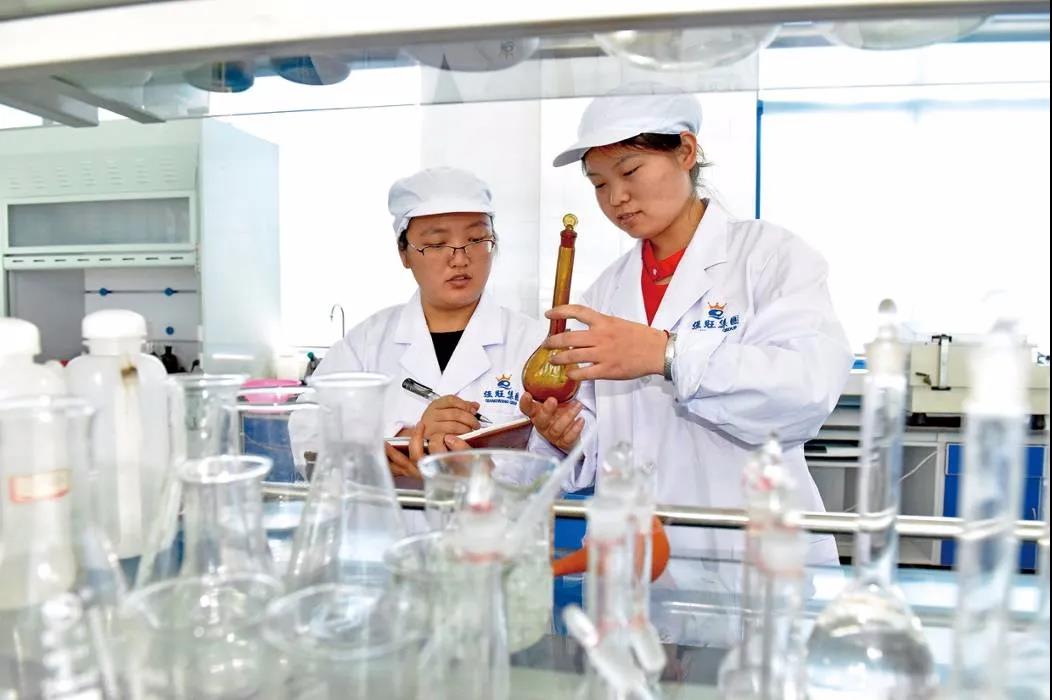
Enterprise scientific
research and innovation
3. Circular economy development become the key words of Jieshou's
practice
The practice of the Jieshou shows that only by steadfastly taking the road of environmental protection, innovation, large-scale and standardized development, can circular economy develop healthily and rapidly.
The first key word: Environmental protection. Firstly,
circular economy is an industry that can solve environmental pollution
problems. Traditional economic growth exploited a large number of resources
from the earth to produce products. At the other end, a large number of waste
water, exhaust gas and waste residue are discharged into the environment.
However, the circular economy takes "resources-products-waste-renewable
resources" as its manifestation, it's an intensified growth model.
Secondly, to develop circular economy, we must insist that environmental
protection is the first priority. If under the banner of circular economy,
still adopted the operation of extensive production, and waste was discharged
uncontrollably, the circular economy park would become a "centralized
pollution discharge place". Thirdly, the development of circular economy
can completely control the impact on the environment within the national norms.
As long as we adhere to the development of Park-based management, establish and
improve scientific supervision mechanism, and constantly guide enterprises to standardize production and upgrade the level of
equipment, the impact of industrial development on the environment can be
controlled within the scope prescribed by the state.
The second key word: Innovation. Firstly, circular
economy itself is an innovative economy. For example, the circular economy
industry of Jieshou can transform two beverage bottles into one fashionable new
clothes, and turn the discarded cans into foam aluminum applied to space
equipment, it is an innovation to turn waste into treasure. Secondly, there is
unlimited potential for scientific and technological innovation in circular
economy field. Many academicians and experts have pointed out that there is
still much potential for the development of circular economy in Jieshou. At
present, Jieshou is discussing with some academician teams in advanced
technology, advanced concepts and other aspects of in-depth cooperation, so
that it can promote the motive force of scientific and technological
innovation. Thirdly, circular economy is a strategic emerging industry.
Strategic emerging industries are based on breakthrough of technological and
development of demand, intensive knowledge and technology can reduce the
consumption of material resources. A great growth potential and comprehensive
benefits are the key to support the healthy and rapid development of circular
economy.
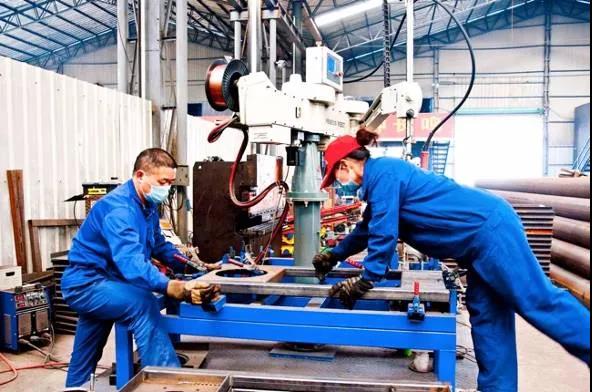
The third key word: Large-scale. Firstly, if industry is without scale, it means the industry has no vitality. Because Jieshou has 2.6 million tons of waste storage batteries, aluminium scrap and plastic scrap annually, which is an industrial scale numbered in the China, laying a solid foundation for the development of circular economy. Secondly, it is the only way from small scattering to group operation. Because Jieshou helps enterprises to get rid of family management, guide enterprises to organize shipbuilding and establish modern enterprise system, the circular economy industry can realize in a relatively short time from small to large, from disorder to norm, from scattered to centralized. Thirdly, the core of economies is the brand and quality. Only by defining the orientation of industry, strengthening the coordinated development of industry, strengthening the quality improvement and brand building in the scale economy, the core competitiveness of the industry can be enhanced in the whole China and even in the whole world.
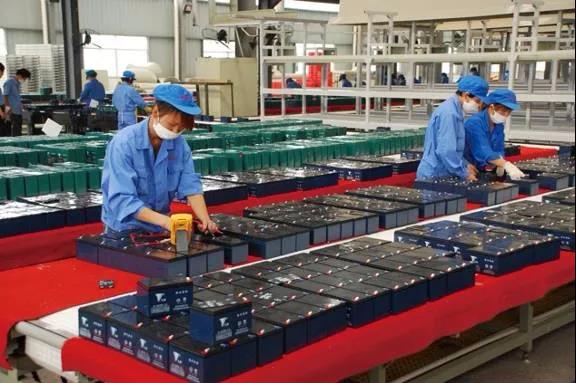
Enterprise scale operation
The fourth key word: Standard. Firstly, the profitability of non-standard enterprises comes from the externalization of internal costs. If the enterprises relying on making profit by polluting society, the cost of pollution will ultimately be borne by themselves, and these ignorant ventures will not contain for a long period. Secondly, standard are the foundation for the survival of circular economy enterprises. It is a magic weapon for the long-term development and sustainable growth of an enterprise to establish a standardized management concept and stick to it for a long time against the market temptation without deviating from the track.. Thirdly, standardized enterprises take advantage of the development by grasping the law of industrial development cycle. The cycle law of circular economy industry is obvious, only when enterprises itself is standardized, it can then develop by taking advantage of the potential in grasping the law, so as to obtain broad development space and realize its own development and growth.
Copyright © Global Forum on Human Settlements (GFHS)
